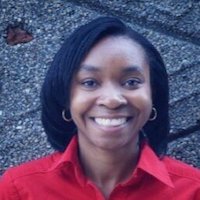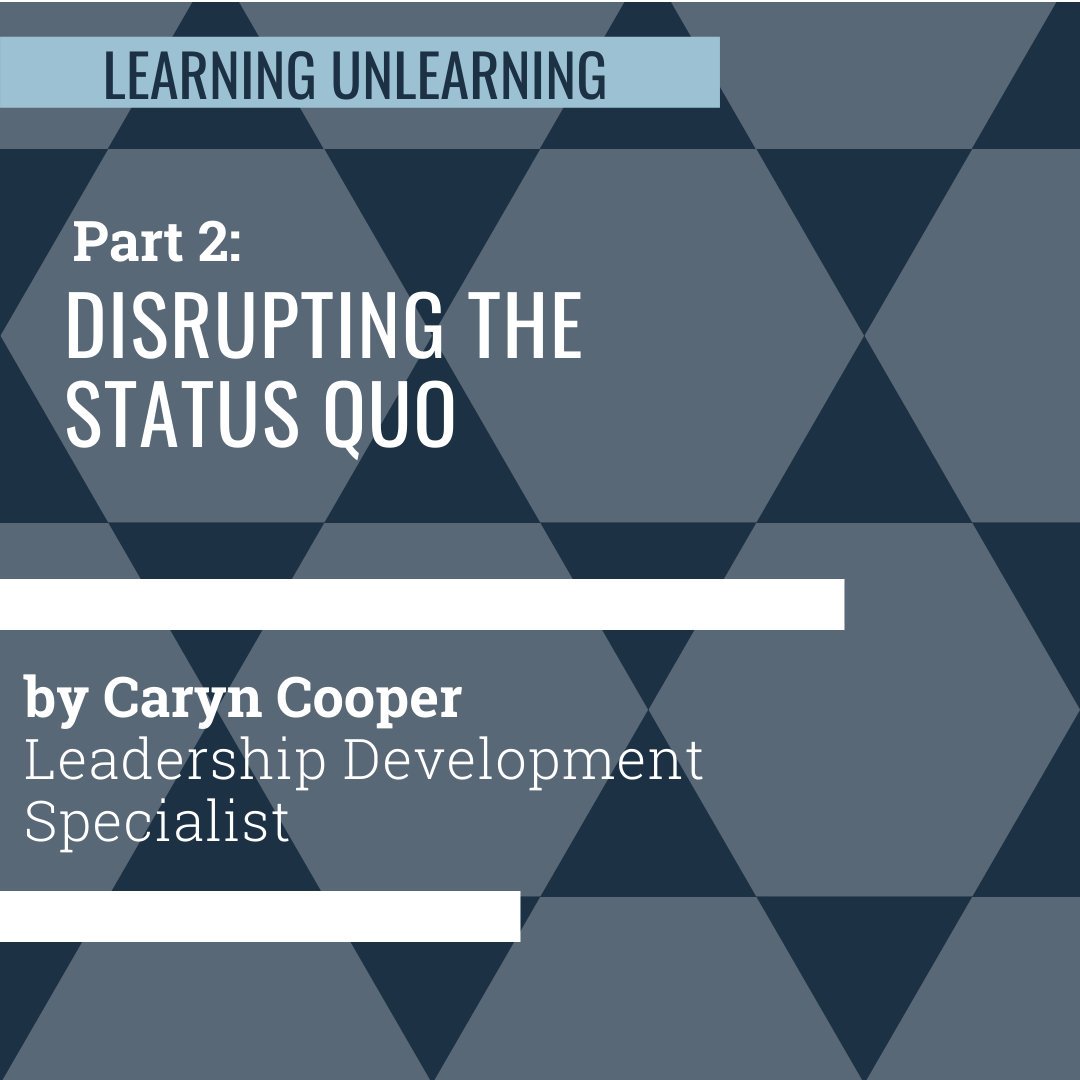Caryn Cooper

Manager, Leadership Programs
Focus: Individual Development
Caryn Cooper (she/her) serves as the Manager of Leadership Programs responsible for the development and implementation of a portfolio of projects supporting leadership pathways. In this role, she focuses on individual development of participants through building networks, cohorts, and to co-created learning experiences and communities.
Caryn is a dance administrator, educator, performer and writer from Long Island, NY. She began her dance training at a young age. She studied ballet in the Royal Academy of Dance (RAD) for ten years and later went on to work with various choreographers and venues in the New York City area such as Lincoln Center, Central Park, and Radio City Music Hall. Administrately, she has worked for a number of arts organizations such as Alvin Ailey American Dance Theater, Ballet Hispanico, ArtsConnection and the New York City Arts in Education Roundtable. When she's not working, Caryn loves teaching fitness classes to older adults and seniors. Caryn holds her MA in Dance Education from New York University and her BFA in Arts Administration from LIU Post.
Location: New York City, New York, USA
Each year, Creative Generation conducts a campaign with a specific focus and this year’s campaign is “Intergenerational Collaboration,” explored through quarterly topics. In this blog, Manager of Leadership Programs Caryn Cooper explores this quarter’s topic, Valuing Ways of Knowing, by reflecting on her previous teachers: both the good and the bad.
“As practitioners, many of us naturally identify patterns and themes; others process information in terms of design. Moving forward with a process, like this one, to uplift, aggregate, analyze, and present information opens up numerous pathways for practitioners of all types and learners of all styles.”
Each year, Creative Generation conducts a campaign with a specific focus and this year’s campaign is “Intergenerational Collaboration,” explored through quarterly topics. In this blog, Manager of Leadership Programs Caryn Cooper explores this quarter’s topic, Redefining Eldership, through the multiple lenses in which we view elders.
Since 2019, Creative Generation has conducted myriad campaigns through its Campaign for a Creative Generation, which is dedicated to empowering young creatives and their communities by providing a hub for stories, resources, and opportunities. This year’s campaign is focused on Intergenerational Collaboration, explored through quarterly topics. In this blog, Manager of Leadership Programs Caryn Cooper writes about this quarter’s topic: Genuine Collaboration.
Artistsnowww (Sul Ju Kim) is a teaching artist from South Korea. My artistic identity has been constructed since I was very young. I started painting at the age of 4 and studied orientalpainting, western painting, sculpture, and design in the art high school. While I studied University and Graduate School, I contemplated how to communicate with the world as an artist and was involved in various projects. In particular, I have endeavored to be an artist who works with marginalized groups. Spontaneously, most of my works address the life of the socially disadvantaged.
Recently, I’ve described different times in my life as pre-pandemic, during the pandemic, and “post-pandemic.” For me, it brings a sense of clarity to describe the way I was participating in various activities during that point in time. Was it in-person, virtual, or maybe a combination of the two?
Thea is a teaching artist and violinist living on Kaurna land (Adelaide), seeking to invite their community into artistic experiences through a creativity and participatory-centred pedagogical practice. They hold a Bachelor of Music (Advanced) Majoring in Music Education and Pedagogy from the Elder Conservatorium of Music, teach music in local schools and created the collaborative composition workshop series A Room of Her Own Workshops, which invite young people to explore what it means to develop mental and physical spaces for creativity, through the work of living femme artists and composers. As a violinist, Thea has collaborated on improvised music projects with dancers, theatre artists and musicians across genres of contemporary classical/art music, experimental, jazz and post-rock as well as curated a workshop/performance on text scores through community organisation MUD. Thea is interested in exploring listening as activism and self-care as well as providing accessible entry points for the community into art-making experiences.
I am a creative, teacher and human rights lawyer. I founded a non profit organization known as Obulamu in 2020 during the Covid-19 pandemic hoping to provide a safe space where children could growth and thrive emotionally, spiritually, physically, socially and mentally. As of now, we have established a children centre in the outskirts of Nairobi, Kenya where we host classes/events for children, which has an art gallery filled with paintings done by me and a collaborating artist depicting personal experiences that we hope will inspire generations to come, a play area, grounds for physical activities. We have set up an online learning platform on youtube where children can access free lessons taught by children as well. We also visit several schools and or children homes to spread love and hope while fostering creativity within the children among other upcoming projects. We hope to build a library and hub that would serve the community here as well as establish a centre at the coast of Kenya as well as in Uganda to serve the same purpose, in the near future.
Razcel Jan Salvarita is a TEDx Talk speaker on the topic “Effecting Environmental Consciousness through Art” where he encapsulated his environmental art actions for more than two decades as a creative artivist and community-based arts organizer. During this pandemic year, he pursued a strong commitment to creative recovery programmes including a transformative healing art experience for women farm workers who were awakened to their artistic skills; he also worked on a public art installation project focused on climate change and the impacts in the local farm community through his grant from ITAC Impact: Climate. He is a multi-disciplinary artist with primary practice on visual and performance art; and identifies his role as an “activator, facilitator, and educator”. He believes in the transformative power of the arts as a centering place for healing, recovery, and renewal of courage.
Chloe Tower is a teaching artist, director, performer, and dancer currently based in Honolulu, Hawai’i. Originally from Orlando, Florida, she graduated with her BFA in Theatre for Youth from Samford University in 2021 and is about to enter her second year as an MFA candidate in Theatre for Young Audiences at the University of Hawai’i at Mānoa. Chloe has worked professionally as a teaching artist with Seattle Children’s Theatre and Garden Theatre, and co-created an applied theatre program in Taitung, Taiwan and Galette-Chambon, Haiti. Most recently, she assisted in devising and performing in The JoyMobile, a nonverbal clowning show, that toured through the island of O’ahu this past year. She believes in the power of play, collaboration, and social emotional learning through theatre education to empower the next generation of creative and empathetic artists.
Chrysa Kovach is a community music facilitator who loves helping others start or continue their musical journeys. Whether it is through teaching or through grant writing, she is always looking for ways to make music education accessible for everyone.
Sarah Gordin is the artistic director and founder of Philly Children's Theatre, as well as a theatre/dance/music teaching artist and director. Sarah received her BA in Theatre from Muhlenberg College. She also studied at the National Theatre Institute Advanced Directing Program at the Eugene O’Neill Theatre Center and The Theatre Academy of London.
Binji Seidu Zakaria is a Theatre for Development (TfD) Facilitator/Community Theatre Artist from and based in Ghana, precisely the Northern region of Ghana. An Advocate and Activist for Minority Groups in Ghana. Binji is the Founder/CEO of Nasanba Community Theatre. He has 8 years of rural community work experience. He holds a Master of Philosophy in Arts and Culture and Bachelor of Arts in Theatre Arts from the University of Education, Winneba, and specialized in Theatre for Development (TfD) in each program.
It is safe to say that the COVID-19 pandemic has affected our lives in different ways. From stay-at-home orders, unemployment, mask wearing, social distancing, to rising infection and death rates, are just a few ways that may have impacted you directly or indirectly over the past two years. We have also developed new phrases that one would only understand because of living in this time from “you’re on mute,” to “which vaccine did you get?” to “pivoting to a new normal.” It has changed the way we work, learn, move, interact and view the world.
Have you ever thought about the things you do everyday? Are there things you do intentionally or not? In reflecting on the theme of “unlearning,” I have noticed that there are a lot of things I do on autopilot. Why? Because they are things from how to fold my laundry to how I tie my shoes, that I have learned growing up and have stayed with me into adulthood. I have done certain things without any thought and have done some things a particular way since I can remember. They have become my status quo.















